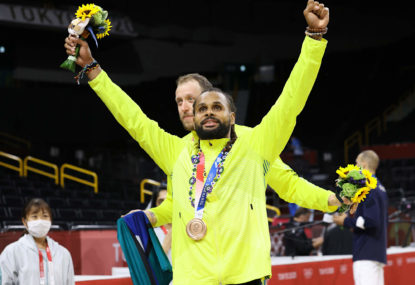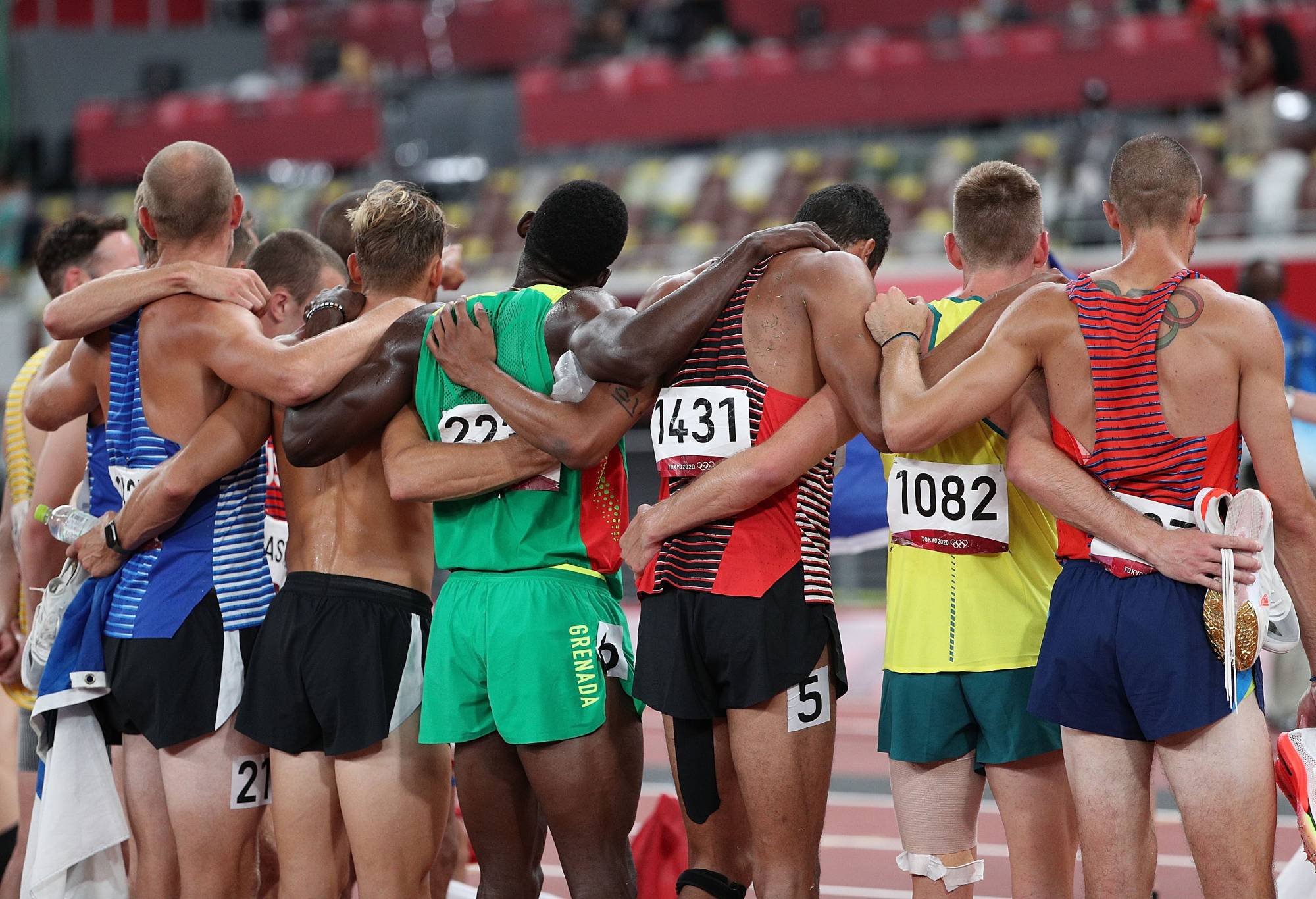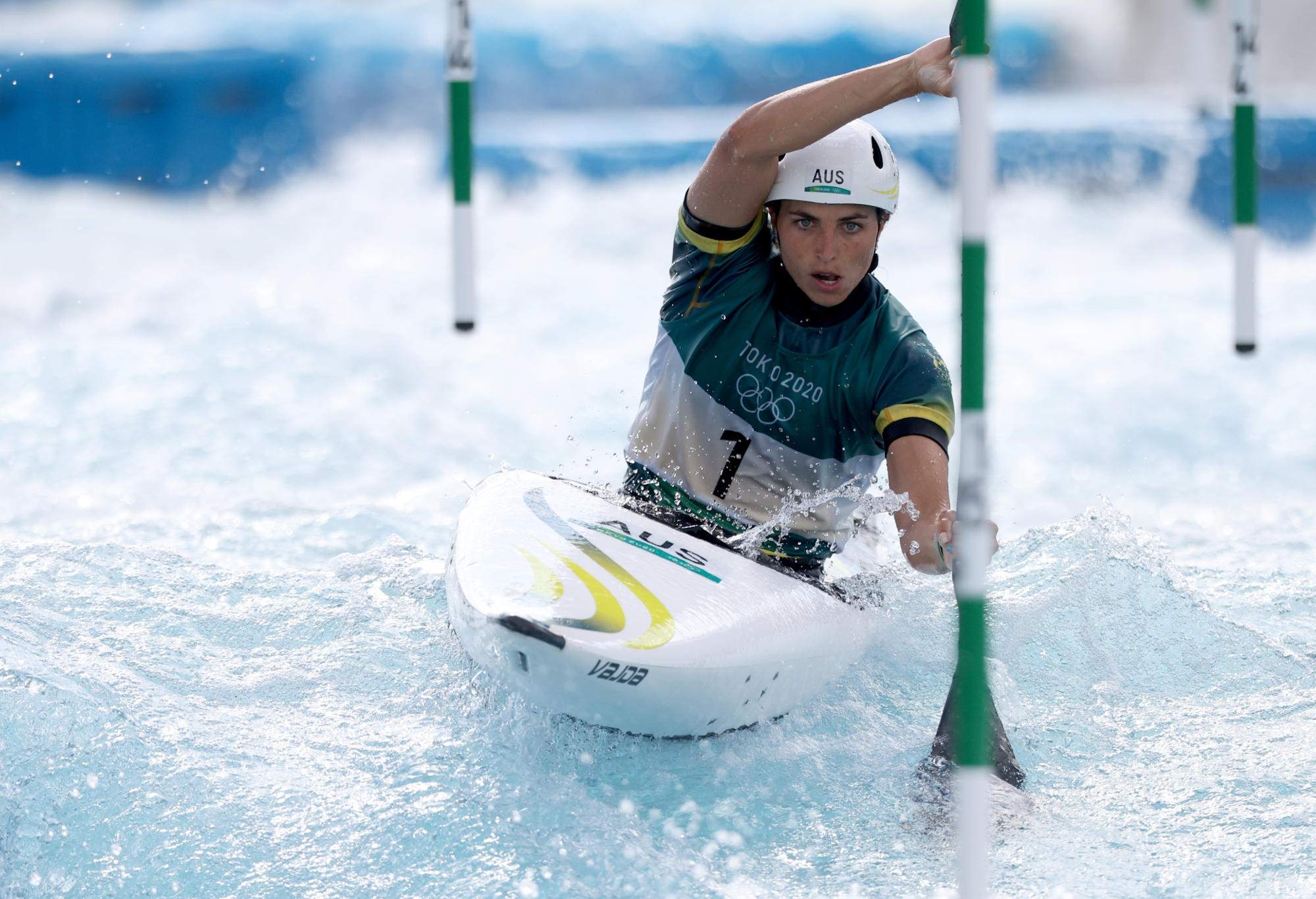'An iconic roster': LeBron, Steph, KD headline all-star cast for Team USA's shot at Olympic glory
LeBron James is going back to the Olympics for the first time in 12 years. Steph Curry is headed to the games for the…

The 2032 Brisbane Olympic Games is already proving controversial. Brisbane’s Lord Mayor Adrian Schrinner quit the delivery forum in December, opposing a $2.7 billion Gabba stadium rebuild and outraging cynics and corporates looking for ways to capitalise on the event.
But while the politicians argued, 24 of Australia’s young sporting leaders gathered in Canberra to pitch a different perspective on the Brisbane Games to the Australian Olympic Committee CEO Matt Carroll.
The Olympic Games is celebrated as a fierce competition that pushes the physical and mental limits of the world’s most elite athletes. Since the modern Games debut in 1896, the originally amateur event has turned into a global spectacle.
Cynics claim the Games have become about political negotiations, new infrastructure and merchandising profits. While Australians complain Olympic Games spending is too extravagant, come 2032 we will still flock to buy pool and trackside tickets and Olympic branded gear to support our team.
In sports-crazy Australia, the culture of consumer spectatorship has overtaken grassroots participation. The Australian Sports Commission’s November 2022 AusPlay report predicts participation will drop a further 10% by 2030.
The decline of playing sport is a dangerous trajectory, because physical activity is proven to grow healthy and happy individuals, hardworking students, resilient employees, connected communities and productive nations.
Overwhelming evidence exists that lifelong exercise is associated with longer life, delaying the onset of 40 chronic conditions.
A vast chasm exists between elite commercial sport and grassroots activities, but the Olympics is different. Unlike other commercialised events, it is fundamentally an amateur showcase of athletic diversity and global unity.
The Olympics is an opportunity to close the sports gap, creating a partnership between institutions and individuals. Money made from the commercial spectacle must flow into the community to get people moving and playing sport, any sport.
This partnership is embodied in the Australian Olympic Committee’s ‘Change-Maker’ program. I was one of 24 youths from across Australia invited to the Olympic Change-Maker national summit, to brainstorm initiatives for the 2032 Brisbane Olympic Games.
The December 2023 summit gave community athletes the opportunity to speak to Matt Carroll, the CEO of the Australian Olympic Committee, in Australia’s Parliament House.

Athletes pose for photos after the Men’s Decathlon 1500m at the Tokyo 2020 Olympic Games. (Photo by Getty Images)
Former Olympic athletes we had idolised led our teams and inspired us not only with anecdotes from the Games but with their journeys off the sporting stage, leaving the change-makers tearful but smiling with admiration. I was inspired by the Olympians’ contagious positive energy, generosity and love of life that united our diverse team.
The theme of the summit, ‘Power The Change’, was not on maximising revenue, medal tallies, or building expensive infrastructure. Instead, we looked at ways to address challenges surrounding inclusion and diversity, accessibility and sustainability. We stepped out of our comfort zone in unique team-building activities, tested our endurance in brainstorming sessions and supported each other over the finish line, masking our nerves with passion as we pitched our ideas in Parliament House.
A dozen pitches included a new ‘Olympic Trail’ through Brisbane, aiming to reduce fossil fuels and support physical activity by encouraging spectators to walk while learning about the diverse athletes and sports at each distance milestone.
We envisioned an app which provided clear education on sport pathways as well as being a platform where second-hand gear could be rented and swapped, encouraging all demographics to enjoy playing sport.

Australia’s Jessica Fox on the way to gold at the Tokyo 2020 Olympics. (Photo by Jan Woitas/picture alliance via Getty Images)
The 2023 Olympic Change-Makers were selected for their community sport initiatives and the summit was just our induction. The true game begins now, as we continue to use sport to power a change for our society.
It’s our responsibility to carry the torch, channelling the global Olympic spirit into local communities as we strive to make playing sport sustainable, inclusive and accessible to everyone.
The intertwined Olympic rings represent the purpose of the Games to unite humanity through the Olympic values of excellence, friendship and respect. The Olympic Games should be an event that builds bridges as well as stadiums as it connects elite competition to grassroots participation.
Whether we cheer for our Olympians from packed stadiums, the family couch or with mates at the pub, remember that playing sport with your squad at the beach, park, field, pool or court is where you’ll experience the true Olympic spirit.
For our Brisbane Games to achieve the ultimate win of a united, happy and healthy nation, it needs to inspire every Australian to act like an Olympian.